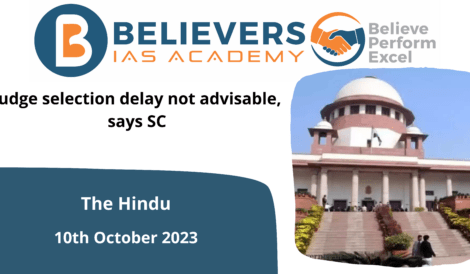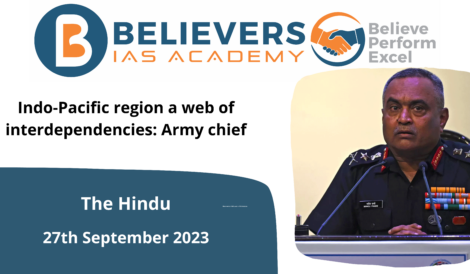A long view of the South Asian Drama
Context:
Uncertainty, a defining feature of South Asian affairs, appears to be on the rise. Pakistan appears to be imploding due to a slew of political, economic, and security problems. With successive elections producing a hung parliament, Nepal’s chances for political stability stay bleak. An embattled opposition in Bangladesh is trying to revert to agitation ahead of elections. While Sri Lanka slowly recovers from an unprecedented economic meltdown, a presidential election in the tiny Maldives could tip the balance between democracy and autocracy. Of course, the run-up to India’s 18th Lok Sabha poll next summer will be closely monitored. This article is about the South Asian political view.
Points to Ponder:
- South Asia is a unified civilizational territory linked by common religions, languages, cultural traditions, and blood ties. India, Pakistan, and Bangladesh all share independent experiences.
- The fundamental values of secularism, democracy, federalism, and linguistic autonomy in India are compulsions to maintain Indian unity and integrity. This is desperately required in the current situation.
- These values were absorbed and internalized during India’s freedom struggle, where democracy, local government, free press, trade union rights, liberal democratic multiparty competitive politics, adult suffrage, secular outlook, and acceptance of the state as a vehicle of development became planks.
- India has survived because of its enormous ability to absorb, internalize, modify, and transform while keeping its personality.
- Most of the developing world envied India’s representational government structure, and its armed forces and press were critical to its success.
- Some of India’s neighbors dispute its unity and integrity, but India’s cultural, and civilizational unity distinct from its surroundings dates back millennia and is the foundation of its nationhood.
- Not language or faith, but shared historical memories, bind individuals together as a nation. A nation’s unity and integrity must be founded on a social contract among the people and maintained through representative institutions.
- The conflict between integration towards a universalized and internationalist society and fragmentation based on differences between groups stems from an innate dread of and inability to deal with the world at large.
- As India grows economically and technologically, its neighbors will adjust to the Indian reality and cease thinking in terms of invoking China and other extra-regional powers as countervailing factors.
- India should strengthen its military capabilities to protect itself from the turbulence around it and to respond to the pressures of this era of coercive diplomacy. And it is also important that we develop the military indigenously.
- India’s diplomacy should concentrate on fostering peaceful coexistence in the subcontinent, including the expansion of aid programs, commerce, and people-to-people contacts.
- The author contends that secularism, democracy, federalism, and linguistic autonomy in India are not simply imported Western values, but were absorbed and internalized during the country’s liberation fight. India pursues these ideals to maintain its unity and integrity.
- Finally, the author emphasizes that in its relations with its neighbors, India should maintain the values of peace, nonviolence, and cooperation, as these are the only keys to long-term peace and stability in the region.




